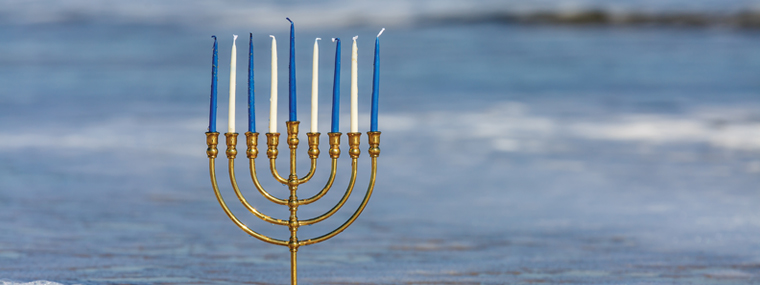
Holiday Decorations
Can They Be Restricted?
By Ryan D. Poliakoff / Published December 2018

We’re all aware that homeowners who live in communities governed by a community association give up some of their autonomy in favor of broader community needs (often, as interpreted by the association’s board of directors). Most homeowners are familiar with rules that restrict where they can put their children’s play equipment, or that prohibit them from placing signs (or pink flamingos) in their front yards. However, many homeowners never consider that these same rules may regulate their behavior around the holidays and are surprised to find that some of the same restrictions that apply year-round can restrict their holiday decorations, as well.
Holidays are a sensitive topic—partly because people take religion seriously, but also because holiday decorations are such a pervasive part of American life. However, there is no question that legally condominiums, co-ops, and HOAs have very broad authority to regulate the appearance of the community. Many people assume that the “freedom of religion” guaranteed by the Constitution would protect their ability to decorate their homes, but the Constitution only governs the government—and in Florida, at least, community associations are not considered state actors. In fact, the only express limitation on a community’s authority to regulate religious decorations is found in the Condominium Act at Section 718.113, Fla. Stat., which provides that the association may not prohibit an owner from attaching a small religious object, not to exceed three inches by six inches by one and a half inches, to their door or mantel (this rule largely protects Jewish mezuzahs, but conceivably would apply to small crosses or other religious symbols). But, prohibiting large objects such as wreaths is fair game; and in an HOA, there is no statutory restriction at all.
In fairness, restricting religious decorations makes a lot more sense in a condominium setting than in an HOA. In a condominium, lights and other objects hung from balconies or in a public hallway can create safety issues, and large decorations placed on an outdoor balcony can get swept off during a storm and be thrown into another unit. In an HOA, the justification for limiting holiday decorations is related more to appearance than safety, and there are simply some communities where holiday decorations are neither customary nor welcome—and that’s something prospective owners need to consider when searching for the perfect home. In practice, the vast majority of HOAs are reasonably liberal when it comes to holiday decorations, allowing nearly any decoration that is safe and does not create a nuisance. (Obviously, if your home is lit up like a baseball diamond, that is going to cause some consternation among your neighbors.) You should make sure, before putting up any holiday decorations on your home, that you have checked your association’s rules and that you have submitted any necessary applications—most of the time you will find that approvals are happily granted in the spirit of the holidays. If not, perhaps it’s time to run for the board of directors, so that you can change the association’s policy in future years.
Disputes regarding holiday decorations often extend to the common areas, as well. It’s common for communities to put lights on their trees or to display snowflakes and other wintery items—but what happens when the seasonal decorations are expressly religious in nature? For every board that decides to display a crèche, you will find one or more owners that demand a comparable menorah (or vice versa); and in a very diverse community, you may get even more uncommon requests. While the board is not governed by the constitution, it is governed by the Fair Housing Act—and a housing provider (such as a condominium or HOA) cannot demonstrate any preference for a particular religion. While pictures of Santa Claus, Christmas trees, and menorahs are not considered religious symbols by the Depart-ment of Housing and Urban Development, nativity scenes, crosses, and Stars of David are; and a religious display may not pass muster unless all religions are offered the same opportunity to display decorations relevant to their beliefs. The best practice is to keep decorations religion-neutral and to leave overtly-religious decorations to people’s private homes. If overtly religious common area decorations are a must, be prepared to provide space in the common areas to allow residents to display symbols from their own religion, and this may include some choices (such as Satanic and Wiccan symbols) that might offend members of your community. Overall, it’s probably best to remain neutral and to accept that religion is a very personal issue that is best left up to each individual owner.
Ryan D. Poliakoff
Partner of Backer Aboud Poliakoff & Foelster
Ryan D. Poliakoff is a partner of Backer Aboud Poliakoff & Foelster and serves as general counsel to condominiums, homeowners associations, and country clubs throughout South Florida. He is the co-author of New Neighborhoods—The Consumer’s Guide to Condominium, Co-Op, and HOA Living. In addition to representing associations, he is a frequent contributor at seminars and workshops for attorneys and board members, and he has written hundreds of articles for magazines and newspapers throughout the United States. He can be reached at rpoliakoff@bapflaw.com. For more information about his firm, visit www.bapflaw.com.


